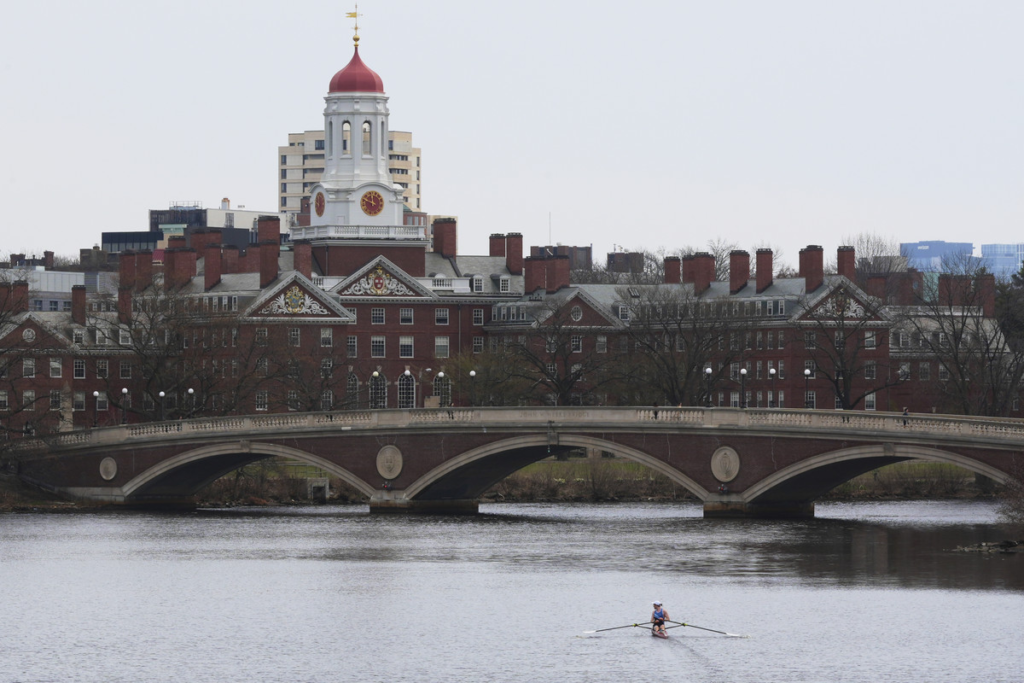Harvard is now at the epicenter of an emerging global education crisis as increasing numbers of Chinese students at U.S. universities are confronted with increasing visa obstacles, sudden expulsions, and policy jeopardy. The “Harvard refugee” terminology is becoming common among some students to refer to individuals whose American educational aspirations are being disrupted by heightened U.S. security and immigration policies.
Based on recent reports, a number of Chinese students who possessed valid U.S. visas have either been denied entry or deported when they arrived. Some had already completed part of their study programs, including postgraduate research, in the world’s best institutions such as Harvard, Stanford, and MIT. The problem has reportedly worsened since 2020 and again gained momentum during 2024–2025 under heightened security screening and wider geopolitics between the U.S. and China.
At least 30 Chinese students have been impacted within the last year alone, based on reports from academic advocacy groups and student unions. They were questioned at airports for hours, had their phones and laptops checked, and were eventually sent back even though they held F-1 or J-1 visas issued by U.S. embassies.
One of the most reported cases was that of a graduate student admitted to a PhD program at Harvard, detained at Boston Logan Airport, interrogated for research affiliations, and refused entry. The student, criminally record-free and having passed visa interviews, was later deported back to China without a chance of communicating with university officials.
University administrators, including Harvard officials, have complained about the vague and frequently capricious application of immigration restrictions. Academic freedom and international collaboration are threatened, particularly with Chinese students constituting the majority of international students in the U.S. The Institute of International Education (IIE) has reported that more than 289,000 Chinese students were enrolled in U.S. institutions during 2023–24, making major contributions to research, tuition income, and worldwide rankings.
Harvard has apparently brought these issues to the attention of the U.S. State Department, calling for more transparency and safeguarding of legitimate academic mobility. Faculty and legal advocates claim that these measures not only hurt individuals but also undermine U.S. soft power and the country’s reputation as an international education capital.

Harvard: How are Chinese students adapting to academic instability in the wake of U.S. policy shifts?
Chinese students, especially at top universities such as Harvard, are being very careful and low-key. A few are steering clear of sensitive research areas, uninstalling apps like WeChat prior to travel, and even opting to pursue degrees online or from partner schools on the European and Asian continents. Some universities also suggested that international students bring printed copies of research subject matter and financial aid, although these precautions provide no assurance of admission.
An increasing number of Chinese students are now reconsidering the U.S. as a study destination. Nations such as Canada, the UK, and Australia are seeing a peak in Chinese student applications, partly due to fewer restrictions on entry and more predictable visa policies. In response, U.S. universities, such as Harvard, are also looking into international satellite campuses and collaborations to continue global involvement.
This change arrives amid tensions in U.S.-China relations over topics that include exports of technology and Taiwan. Laws related to national security like the China Initiative, even though formally rolled back, have created a residual effect on academic review and sentiments towards Chinese academics. This has resulted in alarm and apprehension among students and scholars, with some pulling out of programs completely.
Harvard and other elite U.S. institutions have for years drawn on Chinese students’ academic talents. Such students often direct research, receive national fellowships, and embark on entrepreneurial endeavors after graduation. The new limitations put at risk not only individual educational futures but the ecosystem of research.
University managers have been calling more and more loudly for systematic immigration policy and a distinction between academic scrutiny and political suspicion. The American Council on Education has joined other organizations in calling on the government to protect international education as a foundation of diplomatic and economic power.
Simultaneously, legal analysts emphasize the disparity in enforcement. Two students arriving on the same day with equivalent credentials can receive radically different treatment based on the point of arrival and officer discretion. Without a mechanism for appeal or exposure of the basis, deportations like these set students in academic limbo.
Harvard law scholars, too, have raised constitutional issues regarding due process and discrimination in student treatment. They contend that once a visa is granted by the U.S. embassy, it is a legal contract that must not be arbitrarily canceled without reason.
As of May 2025, there have been no official legislative developments announced to turn the trend around. Yet, lobbying from institutions such as Harvard and student rights organizations persists. There are calls for an ombudsman specifically within the Department of Homeland Security to examine educational visa cases to ensure due process compliance.
Chinese students studying in U.S. colleges and universities are compelled, meanwhile, to deal with uncertainty, possible travel restrictions, and the threat of removal hanging over them. They have expressed sentiments of loneliness and anxiety, and worry about long-term professional repercussions.
In spite of these challenges, Harvard is committed to internationalism. Recently, its provost reiterated that “Academic collaboration across borders is essential to innovation, and all students—regardless of nationality—must be treated with dignity and fairness.”
When geopolitical changes redraw the map of international education, institutions such as Harvard are struggling to maintain global values in an era of increasing constraint.
ALSO READ
Harvard Study: Sadhguru’s Meditation Reverses Brain Age by 6 Years
Trump Administration Threatens 27% of Harvard Students